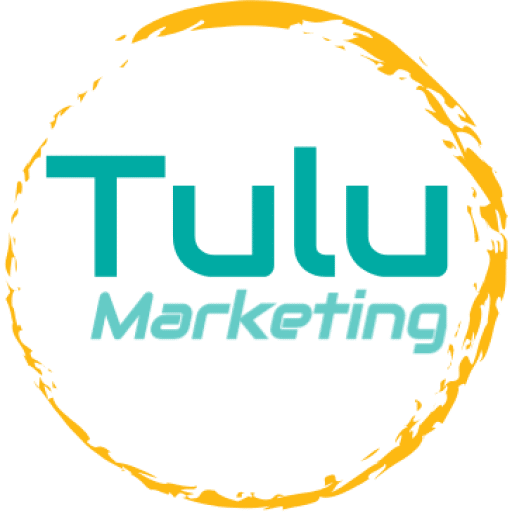FAQ
How long does it take to create a website?
What is the average cost for a website?
Does this include hosting?
What technologies do you use to build your websites?
How many changes can I make to my site without additional cost?
When is the payment required for your web development services?
What is the difference between Organic SEO and Local SEO?
Organic SEO is location neutral. It’s ideal for websites that generate revenue exclusively online or are just looking to generate awareness through a wide audience. If you’re running a national campaign or an e-commerce campaign, this is the perfect methodology for you.
Local SEO targets local search specifically. That means that your audience is within a few miles from your business and that your online presence is meant to drive foot traffic to an actual establishment. This is done through several methods including using geo-centric keywords, producing locally relevant content, building citations on local niches and directories, and tying up with websites in the same area.
How many geo locations does our Local SEO packages target?
Each Local SEO Package targets one location. If your business has multiple locations, you would need to buy a package for each one, unless your geo-targets all fall within a 5-mile radius.
What contributes to Local SEO?
How are citations important for Local SEO?
How are citations important for Local SEO?
How do I place my business in the Google Map pack?
Do you guarantee the rankings?
How soon do I rank?
As a general rule, we recommend a six month period to see positive results in a campaign. How quickly you rank depends on over 200 metrics and how many are inherently present in your site from the time the project starts.
You can expect positive results every 6 months, however, significant traffic increases are dependent on your location, keywords, site’s authority and age, and other factors.
Inherently powerful websites can see results in as quickly as 60 days. Entirely new websites may take up to 1 year to see a significant number of terms appear in the first page and the top 3 positions.
Do you cover other CMS other than WordPress?
We are able to implement in almost any PHP-based platform, technology, or anything that runs on open source technology. We are not able to implement on Microsoft technology or Microsoft-powered websites because of incompatibility between those sites and our servers. Due to the training and experience of our staff and WordPress’ ease of use, we offer implementation of our recommendations on WordPress websites as an added value.
Charges will apply when the optimization of your site requires development changes such as new page building outside of the WordPress CMS capability, Custom post page types in WordPress, implementation in native PHP, HTML, Drupal, Magento, Joomla, and other platforms. To know if we shoulder the cost of implementation, please consult your Project Manager.
What is the difference between an on-page and off-page optimization?
On-page optimization is working on elements within a website that makes it favorable in the eyes of a search engine such as Google. This includes providing structure for the data on your website, optimizing the content to be more Google-readable, aligning all the content of the site to be more focused on certain topics you want to rank, and inserting mark-ups and snippets that would be displayed on search engine results once your website appears.
Off-Page optimization involves SEO activities that do not involve working with the actual website itself.
At the core of off-page optimization is link building, which is done through different methods. This includes placing articles in relevant publications, reaching out to relevant blogs to carry articles, or building citations in powerful websites such as Yelp that points back to your site. All of these activities help increase and improve your business’ digital footprint.
What is PPC?
-
Pay Per Click (or SEM – Search Engine Marketing in Google’s parlance) is a type of advertising strategy that directs traffic to your website from an ad that you paid a search engine or host website to post. It is basically the amount of money spent to get your advertisement from a search engine or website that you don’t own to be clicked.
-
Types of PPC campaigns are:
-
– Search Adwords Campaign
-
– Remarketing on the Google Display Network
-
Who should use this package?
What does it do for my business?
Does it put my ad on the top page of Google every time?
Will it ensure sales and leads to our business?
Do I need to have an existing Google AdWords account to avail of the service?
I already have an existing Google AdWords account. Do I still need to pay for the setup fee?
Are landing pages always recommended, or can I just use my homepage?
Do I have access to the PPC Campaign that you are going to create?
Why do I need PPC when I have SEO?
-
Any SEO campaign done in a safe, organic way will take some time to rank. A business could utilize PPC to advertise on the search page for the same keywords while the SEO campaign is still gaining momentum.
-
PPC is also useful if you want to maximize the search page. There are different businesses located on the search page. To fully maximize it, use PPC.
-
Finally, while it is impossible to rank for a competitor’s brand organically, this is common practice in an AdWords campaign.
Can I do PPC without SEO?
-
Yes, as PPC is not SEO dependent. It does not rely on Google search algorithms. It’s an advertising campaign that takes advantage of Google’s nature as a search engine.
-
Unlike SEO, PPC will never generate free traffic because Google is ranking you based on your ad spend and not the quality of your site. SEO is an investment in the quality of your site and not just an investment in gaining organic rankings.

